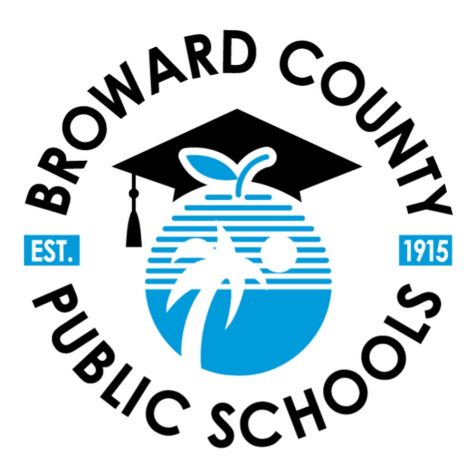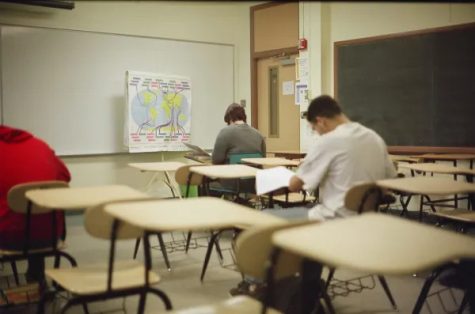Florida midterm elections have national consequences
In the years between presidential elections, the US holds what are known as midterm elections, so called because they take place in the middle of presidential terms. 2022 is one such year, so people across the country will be electing hundreds of local officials and representatives to Congress.
With early voting already on the way and election day tomorrow, it’s important that eligible students be informed about what’s on their ballot. Here are a few of the key races on the ballot:
Governorship: Republican Ron DeSantis and Democrat Charlie Crist
DeSantis touts his business-friendly response to the COVID-19 pandemic, opposing federal masking and social distancing guidelines. DeSantis’ approach was very polarizing, with his detractors arguing it was irresponsible and exposing people to COVID, while his supporters saw it as maintaining freedom at a time of lockdowns and protecting the economy by keeping businesses open.
DeSantis continued to stir conversation after the pandemic with his education agenda by championing the Parental Rights in Education Act, or Don’t Say Gay bill as critics have dubbed it, which bans discussion of sexual orientation and gender in Kindergarten through 3rd grade or higher grades “not age appropriate […] in accordance with state standards.” DeSantis and his supporters say these measures are necessary to prevent indoctrination in public schools, while critics argue these are simply excuses to erase and censor history.
Crist was previously elected Florida governor as a Republican in 2006 and served one term before becoming an Independent and running unsuccessfully for Senate in 2010. He became a Democrat in 2012, saying that he “didn’t leave the Republican Party; it left me.” He unsuccessfully ran for governor again in 2014 but in 2016 won his House election in Florida’s 13th district, which he represented until he resigned to run for governor in this cycle.
While DeSantis has criticized Crist’s congressional spending votes, Crist has rebutted by arguing that DeSantis has failed to properly address inflation and the cost of living crisis as governor of Florida, particularly regarding property insuranceCrist has made funding public education and expanding abortion rights central to his campaign. He has strongly criticized the 15-week abortion ban signed by DeSantis and promised to support abortion providers across the state. DeSantis has argued that the ban is reasonable given how developed the fetus is at 15 weeks.
Crist has also argued that DeSantis would most likely resign halfway through a second term to run for president, something DeSantis hasn’t addressed directly.
Senate: Republican Marco Rubio and Democrat Val Demings
Rubio was first elected to the Senate in 2010 and ran for reelection in 2016 after a failed presidential bid. Before that he served as Speaker of the Florida House of Representatives for 2 years and as its Majority Leader for 6.
Demings was the chief of police for the Orlando Police Department before being elected to represent the city in Congress in 2016. In 2020 she was one of the seven managers of Donald Trump’s first impeachment trial and was considered as a potential Vice Presidential nominee by Joe Biden, though he ultimately didn’t choose her.
The race for the Senate has been fairly similar to the one for governor, with Demings criticizing Rubio’s support of a federal 15-week abortion ban and Rubio disavowing Demings’ 100 percent voting record in support of Biden.
The Senate is currently split 50/50 between Democrats and Republicans. Any single election could decide the balance of power, and Florida’s no exception.
House of Representatives
The 25th district, which is seeing a rematch between longtime incumbent Democrat Debbie Wasserman Schultz and Republican up-and-comer Carla Spalding.
Wasserman Schultz has been serving in elected offices for the last 30 years, starting out in Florida’s House and Senate before being elected to the US House in 2004.
Spalding is a Jamaican immigrant and nursing professor who served in the US Navy for 5 years.
She’s never held elected office before, but has been running for Schultz’s seat since 2016, gradually making headway until winning the Republican primary in 2020.
Like the Senate, the House of Representatives is narrowly divided between Democrats and Republicans, and every election is key to deciding the majority.
School Board
Besides the big Congressional and statewide elections, there’s plenty of smaller local elections such as those for local school boards.
Broward’s school board race has been shaken up by governor DeSantis’ suspension of four school board members on August 26 following a grand jury report accusing them of incompetence in their handling of the 2018 Marjory Stoneman Douglas shooting and the mismanagement of a technology and maintenance bond.
The governor has defended the suspensions as necessary given the findings of the grand jury, while the suspended school board members have argued the move was politically motivated and undemocratic since three of them were not seeking re-election and the other would face voters in November.
One of the 4 suspended members, Donna Pilger Korn, is trying to reclaim her position in seat 8, which represents the whole county. She’ll be facing off against businessman and civil servant Allen Zeman.
There’s five other school board seats up for election this year, with the district you vote in depending on your address. Western High is situated in district 6, which is choosing between Brenda Fam, a family-focused candidate with a similar platform to the governor, and Steven Julian, who’s running a campaign focused on student mental health and teacher pay.
Ballot Initiatives
Floridians are also voting on three amendments to the state’s constitution
Amendments 1 and 3 are to reduce property taxes on people who make flood-prevention renovations to their house and public service workers respectively. Amendment 2 is more controversial; it proposes abolishing the Constitutional Revision Commision, a 37-member commision that meets every 20 years to propose new amendments to the state constitution. Democrats advocate reforming the commission while Republicans move to abolish it completely.
For more information on your local ballot, visit ballotpedia.org.







